6 reasons to upgrade to a high-efficiency boiler
In today’s world, where energy prices are continually on the rise and environmental concerns are becoming more pressing, upgrading to a high-efficiency boiler is a decision that many homeowners are considering. This article will delve into the various aspects of high-efficiency boilers, explaining their workings, benefits, financial implications, environmental impact, and the practicalities of installation and maintenance. Let’s explore why this upgrade could be a worthwhile investment.
Understanding the concept of a high-efficiency boiler
What is a high-efficiency boiler?
A high-efficiency boiler, also known as a condensing boiler, is designed to use fuel much more efficiently than traditional heating systems. These boilers can achieve efficiency ratings exceeding 90%, meaning that a larger percentage of the fuel burned is converted into usable heat. This efficiency is largely due to the boiler’s ability to condense water vapour in exhaust gases, recovering and utilising the latent heat that would otherwise be lost in traditional systems.
In the realm of home heating, these boilers represent a significant advancement, as they not only deliver warmth but do so in a way that limits waste and enhances energy savings. Many manufacturers have integrated advanced technologies, such as modulating burners and sophisticated controls, which allow for greater performance and energy efficiency. Additionally, high-efficiency boilers often come equipped with features that enable them to adapt to varying heating demands, ensuring that they operate at optimal efficiency regardless of the season or weather conditions. This adaptability not only contributes to cost savings but also reduces the environmental impact associated with heating.
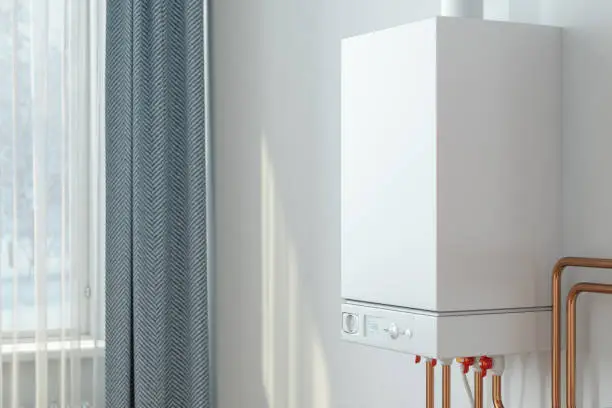
How does a high-efficiency boiler work?
A high-efficiency boiler operates through a unique two-stage process. Initially, it burns fuel to produce heat, which is used to warm water or air within the home. However, unlike standard boilers, which expel hot gases directly into the atmosphere, high-efficiency models utilise a heat exchanger that captures some of the heat from the exhaust gases.
This heat is then used to pre-warm the incoming water, resulting in less energy required to reach the desired temperature. The process of condensation occurs when the exhaust gases cool down and turn back into liquid, allowing the system to reclaim additional heat for use. This leads to higher overall efficiency and lower fuel costs for the homeowner. Furthermore, the design of high-efficiency boilers often includes a more compact footprint, making them suitable for a variety of installation spaces, from small flats to larger homes. This versatility, combined with their ability to significantly reduce energy bills, makes them an increasingly popular choice among homeowners looking to modernise their heating systems while being mindful of their environmental footprint.
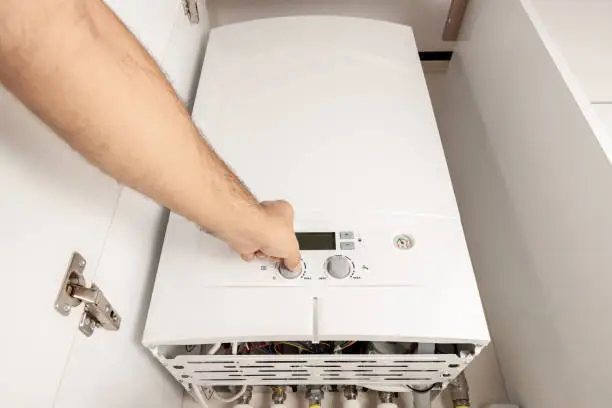
The benefits of a high-efficiency boiler
Lower energy bills
One of the most compelling reasons to consider upgrading to a high-efficiency boiler is the potential savings on energy bills. With their improved efficiency ratings, these boilers consume less fuel to produce the same amount of heat, resulting in lower monthly heating expenses. Homeowners can expect to see reductions of up to 30% on their heating bills compared to less efficient systems.
Additionally, as energy prices continue to fluctuate, having a high-efficiency boiler means you are less vulnerable to market changes and rising costs, providing both peace of mind and financial stability. This financial benefit can be particularly advantageous for families or individuals on a fixed income, as it allows for better budgeting and allocation of resources towards other essential needs, such as education or healthcare.
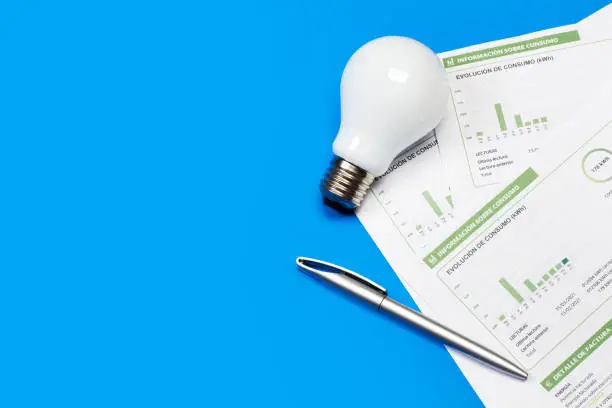
Reduced carbon footprint
Another critical advantage of high-efficiency boilers is their positive impact on the environment. With decreased fuel consumption comes a reduction in greenhouse gas emissions. High-efficiency systems produce fewer pollutants, such as carbon dioxide and nitrogen oxides, contributing to cleaner air and a healthier planet.
For environmentally conscious homeowners, adopting these systems is a significant step towards sustainable living. It aligns not only with personal values but also supports global efforts to combat climate change. Furthermore, many local governments and councils are now offering incentives and rebates for homeowners who choose eco-friendly heating options, making the transition to a high-efficiency boiler even more appealing from a financial perspective.

Improved heating control
A high-efficiency boiler often comes equipped with advanced controls and modulation features that allow for better temperature management throughout the home. This means that heating can be more evenly distributed, ensuring comfort in every room without the fluctuations commonly associated with older heating systems.
Smart thermostats, for instance, can learn your heating preferences and adjust accordingly, providing tailored heating on demand. This level of control optimises comfort while minimising unnecessary heating, thus making your home more energy-efficient. Moreover, many high-efficiency boilers can be integrated with home automation systems, allowing homeowners to monitor and adjust their heating remotely via smartphone apps. This not only enhances convenience but also ensures that energy is not wasted when the home is unoccupied, further contributing to cost savings and environmental benefits.
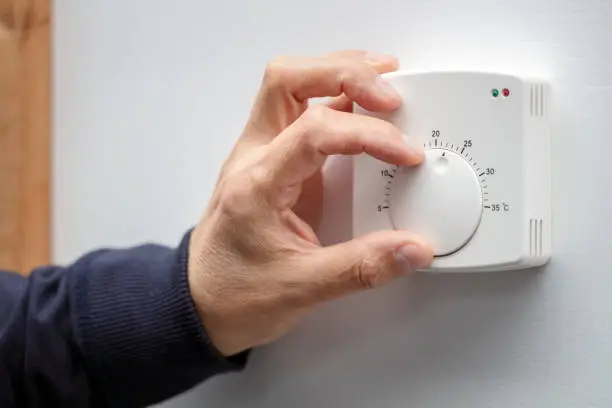
The financial implications of upgrading to a high-efficiency boiler
Initial investment and long-term savings
While the initial investment for a high-efficiency boiler may be higher than a traditional model, the long-term savings it offers make it a cost-effective choice. Homeowners typically recoup their investment through savings on fuel bills over a few years.
Additionally, these boilers often have longer lifespans, reducing the need for frequent replacements. With proper maintenance, they can last up to 15-20 years, providing years of reliable service while keeping costs down. Furthermore, the efficiency of these systems means they convert a higher percentage of fuel into usable heat, which can lead to significant reductions in energy consumption. This not only translates into lower bills but also less environmental impact, making it a win-win for both your wallet and the planet.

Potential grants and schemes for boiler upgrades
Many governments and local authorities offer financial incentives, grants, or schemes to promote the installation of high-efficiency systems. These initiatives can significantly reduce the upfront costs associated with upgrading.
Homeowners can explore options such as the Renewable Heat Incentive or local energy efficiency schemes that may provide subsidies or tax benefits. Ensuring you take advantage of these financial support mechanisms can make tackling the upfront costs more manageable while contributing to a more sustainable future. Additionally, some energy suppliers may also offer cashback schemes for customers who choose to upgrade to energy-efficient appliances, further enhancing the financial viability of such investments. It’s worth researching the specific programmes available in your area, as these can vary widely and may provide substantial savings that make the transition to a high-efficiency boiler even more appealing.
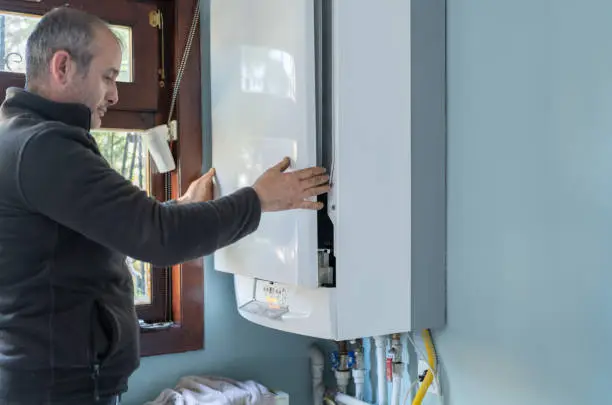
The environmental impact of high-efficiency boilers
Reduction in greenhouse gas emissions
As mentioned previously, high-efficiency boilers produce fewer emissions compared to their traditional counterparts. This reduction plays a vital role in decreasing the overall carbon footprint of your household. Promoting lower greenhouse gas emissions is essential for mitigating global warming and its adverse effects on the environment.
By choosing a high-efficiency boiler, homeowners participate in a broader movement towards reducing dependency on fossil fuels and fostering a healthier ecosystem. The cumulative effect of many households making this switch can lead to significant reductions in emissions on a national scale, contributing to climate goals set forth by governments and international agreements. Furthermore, the transition to cleaner heating solutions not only benefits the planet but also enhances air quality, which is crucial for public health, particularly in urban areas where pollution levels can be alarmingly high.
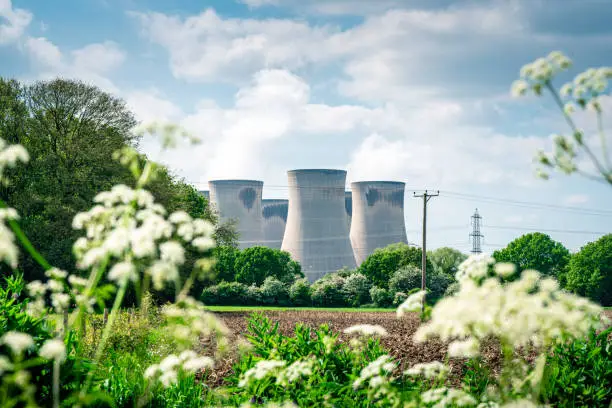
Conservation of natural resources
The shift towards high-efficiency boilers also aligns with the need to conserve natural resources. As these systems are more fuel-efficient, they require less energy input, which correlates to conserving fossil fuels and other non-renewable resources.
This conservation is critical not just for the present, but for future generations, as it ensures that we can continue to support life in a sustainable manner. By adopting high-efficiency technologies, we send a powerful message about the importance of environmental stewardship. Additionally, the reduced demand for fossil fuels can lead to decreased extraction activities, which often result in habitat destruction and biodiversity loss. The more we invest in energy-efficient solutions, the more we protect our natural landscapes and the myriad species that inhabit them, fostering a more balanced coexistence between human development and nature.

The practicalities of upgrading to a high-efficiency boiler
Installation process and considerations
Upgrading to a high-efficiency boiler generally involves several steps, including an initial assessment by a qualified heating engineer. This assessment determines the suitable size and type of boiler for your home, taking into account factors like heating demands and existing infrastructure.
During the installation process, homeowners may need to consider any necessary modifications to their existing systems, including venting or radiator upgrades. It’s essential to work with professionals who understand all regulatory requirements and can ensure a compliant and efficient installation.
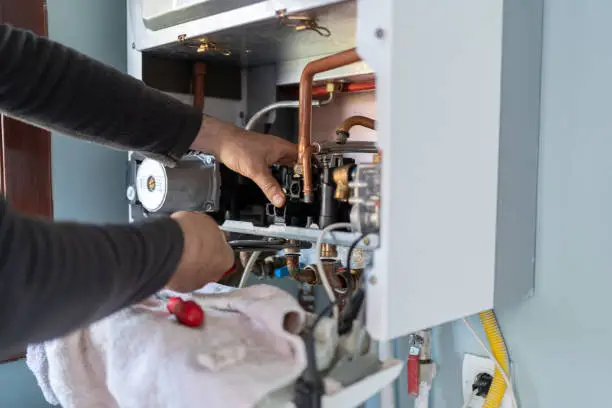
Maintenance and lifespan of high-efficiency boilers
Regular maintenance is crucial for high-efficiency boilers to maintain their performance and efficiency. Homeowners should schedule annual servicing, which includes checking for any faults, cleaning components, and ensuring safety standards are met. This proactive approach can enhance the lifespan of the system considerably.
Typically, high-efficiency boilers have a lifespan of 15-20 years with proper care, making them a durable option for home heating. Investing in regular maintenance not only extends the boiler’s life but also maximises energy savings and reduces the likelihood of unexpected breakdowns.
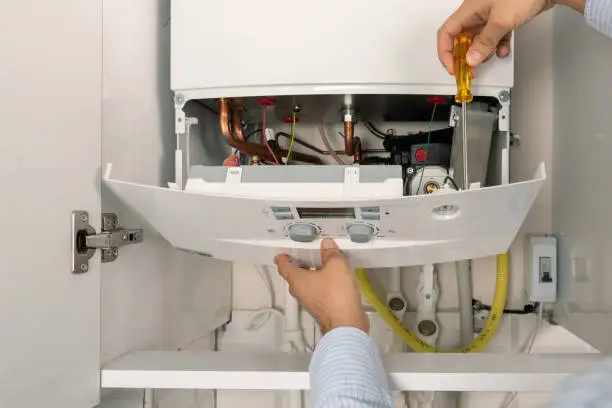
In conclusion, upgrading to a high-efficiency boiler is a smart financial decision with far-reaching benefits. From lower energy bills and enhanced environmental sustainability to improved heating control and potential financial assistance, this upgrade can lead to a more comfortable and responsible home. As technology continues to advance, the advantages of these systems will only become more pronounced, making now the ideal time to consider an upgrade.
